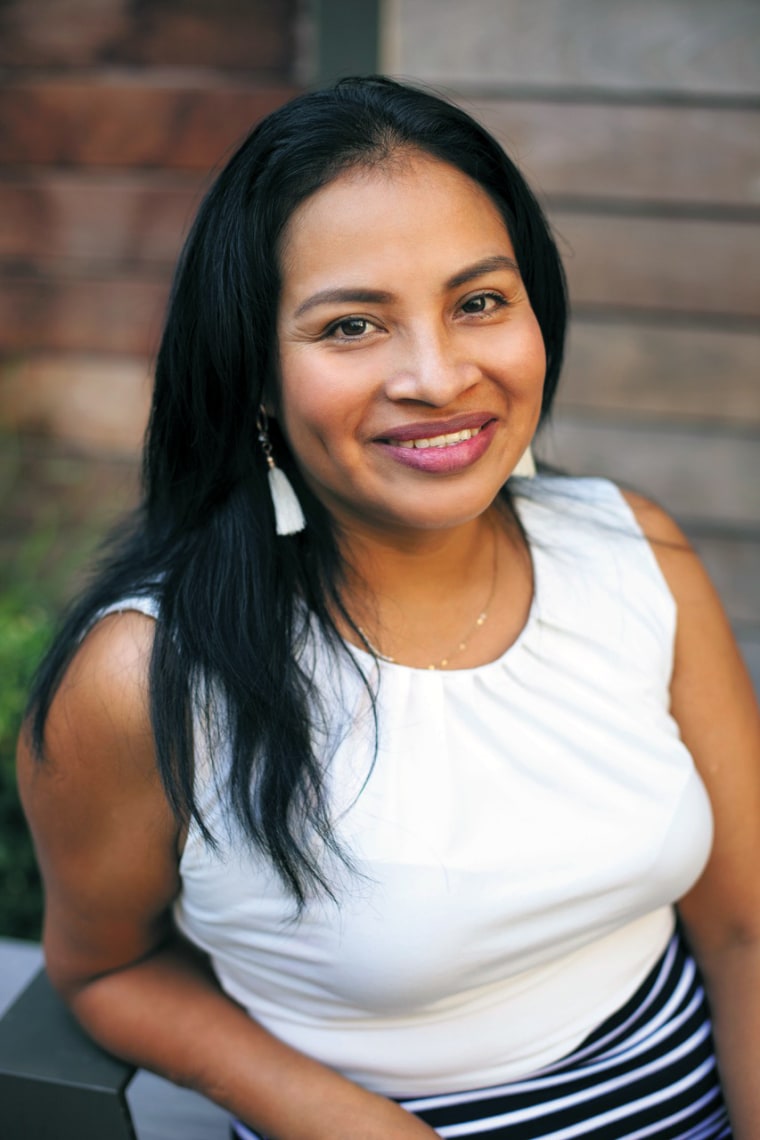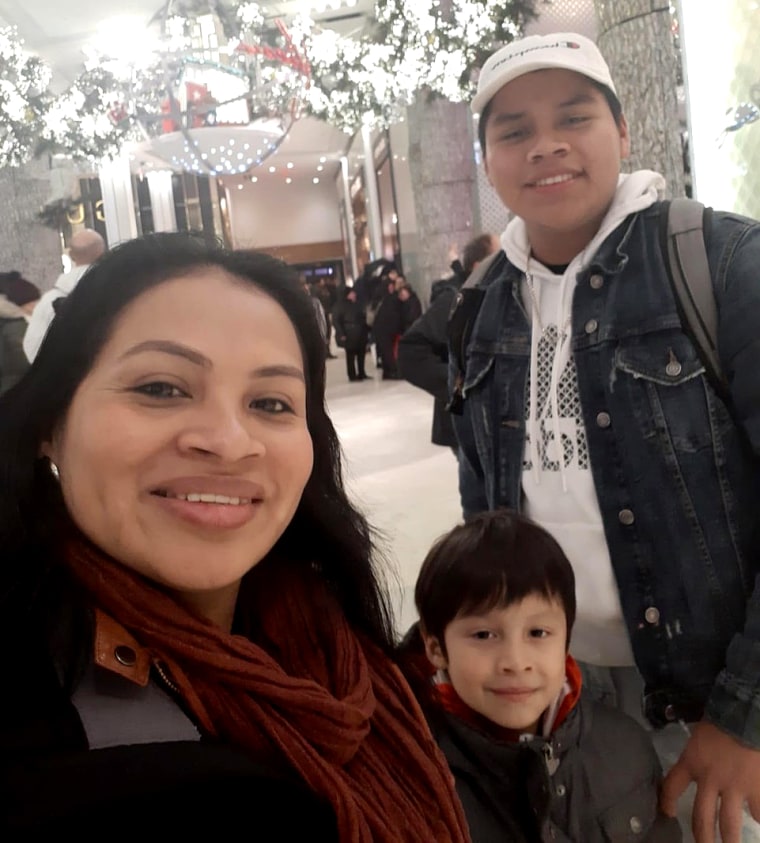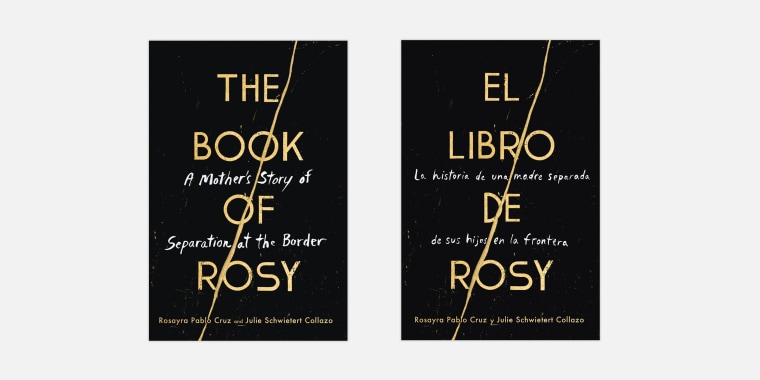Rosayra "Rosy" Pablo Cruz lived through the unimaginable.
She thought it had been bad in Guatemala, after her husband was murdered—like most crimes, it went unsolved—she was shot and her oldest son was threatened by gangs.
But the worst was yet to come. After escaping her country in 2018 with her two children, then 5 and 15—they hid in the airless compartment of a truck—Cruz reached the United States and sought asylum.
At an Arizona detention center, in the middle of the night, guards came in and took away her children. They said goodbye at 2 a.m., and she would not see them again for nearly three months.
Cruz was separated from her sons under the Trump administration’s “zero tolerance policy.” While the policy was designed to deter migration from Central America, Cruz said that word of it never reached towns and villages in Guatemala. It was put into effect in April 2018, just 10 days before she crossed the border. Trump’s policy sparked international outrage and was rescinded with an executive order in June that year.
Now Cruz, 37, and Julie Schwietert Collazo have written “The Book of Rosy: A Mother’s Story of Separation at the Border,” chronicling the former's harrowing experiences in bringing her sons to safety.
Described as a “disturbing and unforgettable memoir” by Publishers Weekly, the book is simultaneously being published in Spanish.

For Cruz and the other mothers in detention, not knowing where their children were proved nearly unbearable, she writes. “I have seen women go crazy with hysteria. They curl up on their bunks and refuse to leave their cells,” she writes. “I have seen them shut down... lose their will to fight, their will to go on.”
One time, Cruz and a group of mothers had an unusual moment of clarity. In detention without their children, they were merely existing. What defined them — taking care of their family—was gone, for the first time in their adult lives.
Cruz's journey to the U.S. was additionally traumatic because she made the wrenching decision to leave her two daughters behind with her mother, a judgment she knows some readers will question. “To remember what happened is very hard, but it serves to tell the story,” she said, in Spanish. “Every painful memory is difficult to remember, but the acts of remembering also help us to move forward.”
A reunion, thanks to the help of one woman
Cruz was eventually reunited with her sons, who had been placed in a foster home in New York City, through the efforts of her co-author, Julie Schwietert Collazo, the co-founder of Immigrant Families Together. The group works to reunite migrant families who were separated at the border.
Cruz says the last few minutes spent waiting at the agency to see her children again may have been the most difficult ones. She had nothing to give them except her little son's stuffed dinosaur, which he wasn't allowed to take with him when he was separated from his mother.
Finally her sons entered the room, accompanied by a caseworker.
"My heart! They look different!...I wrap them in my arms. I stroke their hair," she writes. "I hold them out at arms' length and look at them intensely. "I love you. I love you," I say. "I told you we would be together again."

Schwietert Collazo was drawn to activism when she learned that a migrant mother in detention could be reunited with her family if her bond money and travel expenses were paid. She had “a wild idea” to try and raise money to bail out one mom. Soon she was receiving donations from friends, family, faith groups and celebrities like the actress Kristen Bell, and what began as a grassroots campaign became a national organization. To date, Immigrant Families Together has helped 120 people get out of detention.
She is aware that “The Book of Rosy” can be viewed as a real-life counterpart to the controversial novel “American Dirt.” The latter, a fictional account of a mother fleeing Mexico, has been criticized as inauthentic.
“I have been happy, so far, by the reactions to our book,” she said. “People seem happy to have access to a story told by the person who lived it. It’s Rosy’s story, but the contours are shared by thousands of migrants.”
In February, Cruz was granted asylum, which means that she and her two sons can legally remain in the U.S. This makes her quite fortunate; most asylum-seekers from Guatemala are denied such protection. She is in the process of obtaining legal status for her two daughters.
Suspending the asylum process
Along the border, things have changed dramatically since Cruz crossed in 2018, as the Trump administration has sharply restricted entry and made major changes to the immigration system.
On March 20, the U.S. and Mexico suspended nonessential travel across their shared border and the Department of Homeland Security has barred entry to anyone without legal status. The Trump administration has touted the measures as a way to curb the spread of COVID-19.
Wendy Young, president of Kids in Need of Defense, a group that helps refugee and unaccompanied migrant children, disagrees with the decision to bar all migrants from being able to enter the U.S.
“I don’t see the protection of children and refugees, and the protection of the public, as an either/or proposition. We can do both." She cited the fact that, during the pandemic, the administration has fast-tracked some unaccompanied children’s cases, making increased use of videoconferencing. She believes that this undermines due process.
“The border is pretty much shut down and we expect it to continue that way for the duration of the Trump presidency,” Aaron Reichlin-Melnick, policy counsel at the American Immigration Council, said. “No one is trying to pretend that the health concerns don’t exist. Yet, blanket migration bans with no attempt to create a middle ground show that this is more a political action than public health action.”
Reichlin-Melnick added that family separations are still occurring, but in a different context. Recently, the administration presented detained migrant parents with the option of separating from their children or remaining together in detention indefinitely, drawing outrage from immigrants rights organizations.
Often it seems to be tragedies, like the deaths of children in immigration custody, that draw national attention to problems along the border. “But I don’t fault the public or the media,” Young said. “I fault the policymakers who fail to follow through and address problems highlighted in such moments.”
Despite her harrowing experience, Cruz said that “in good moments and bad moments, there are always good people."
While she describes the “unfathomable cruelty” of some of the guards at the detention center, who threatened to throw the women in solitary confinement if they saw them hugging, there have been moments of kindness and grace, like Americans stopping her to apologize for the government's separation of children.
With the coronavirus pandemic and the anti-police brutality protests happening, Cruz hopes that people will not forget about migrant families at the border. “We have to pay attention," Cruz said. "The common thread in these events is human suffering — and we should not forget any aspect of that.”
Follow NBC Latino on Facebook, Twitter and Instagram.


